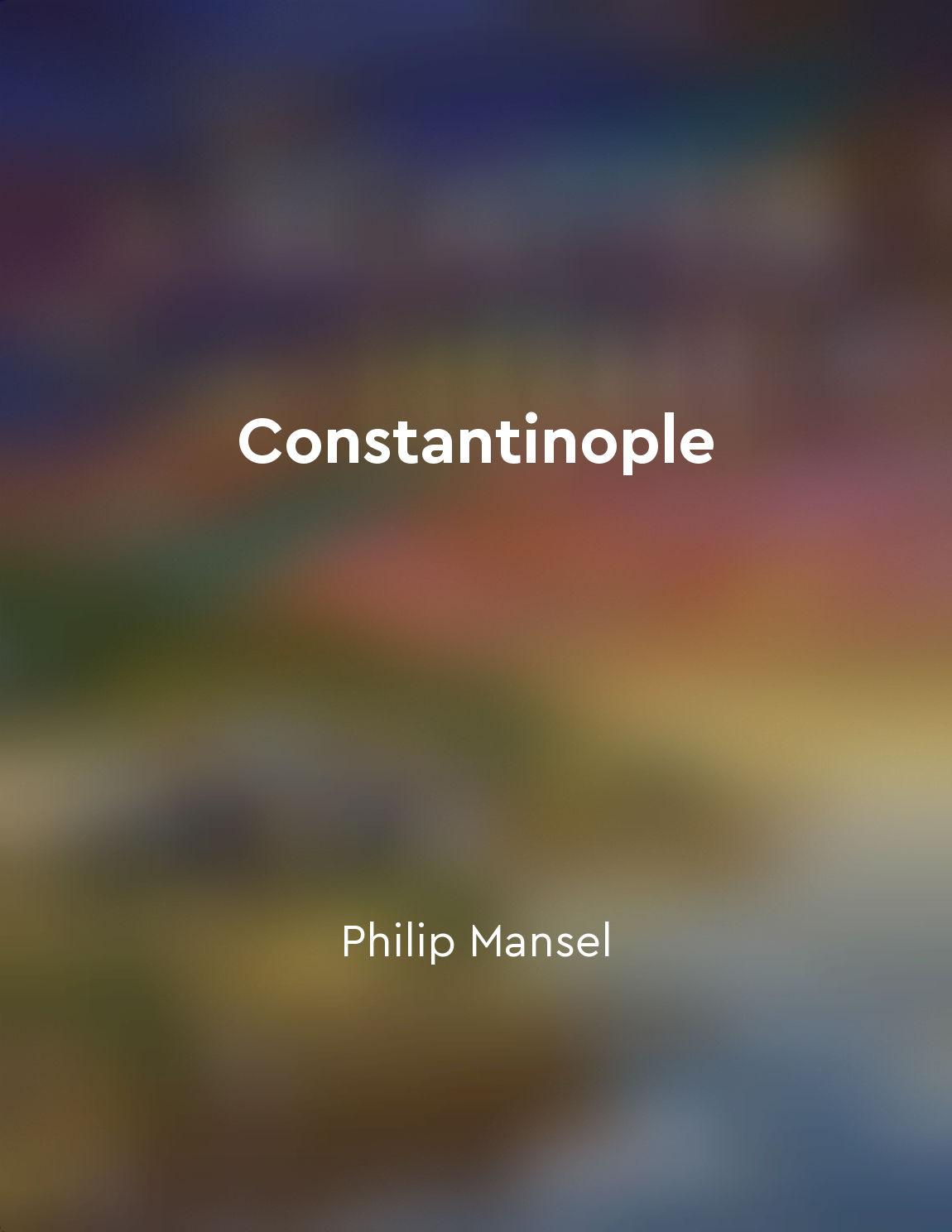Ottoman rule from "summary" of Constantinople by Philip Mansel
The Ottoman Empire ruled Constantinople for nearly 500 years, from 1453 to 1922. During this period, the city became a vibrant cultural and economic center, serving as the capital of the empire and a key hub for trade between Europe and Asia. The Ottomans brought a new level of cosmopolitanism to Constantinople, drawing people from diverse backgrounds and religions to live and work in the city. One of the defining features of Ottoman rule in Constantinople was the religious tolerance that the empire practiced. While the Ottomans were Muslim, they allowed Christians and Jews to practice their faiths freely within the city. This policy of religious tolerance helped Constantinople to become a melting pot of different cultures and traditions, contributing to its status as a cosmopolitan city. Under Ottoman rule, Constantinople also experienced a period of urban renewal and development. The Ottomans built mosques, palaces, and other architectural wonders that still stand in the city today. They also constructed a network of roads, bridges, and aqueducts that improved transportation and connectivity within Constantinople. The Ottomans also established a system of governance that allowed for a degree of autonomy and self-governance among the various communities within Constantinople. This system, known as the millet system, gave different religious and ethnic groups the right to govern themselves according to their own traditions and customs, as long as they paid taxes and remained loyal to the Ottoman sultan.- Constantinople also faced challenges and periods of decline during this time. The city was besieged by foreign powers, experienced economic hardship, and suffered from internal strife and conflict. Ultimately, the Ottoman Empire began to weaken in the late 19th and early 20th centuries, leading to the fall of Constantinople in 1922 and the end of Ottoman rule in the city.


